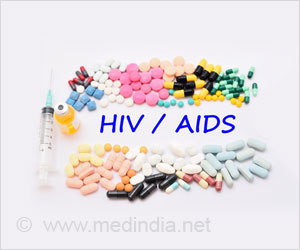Shumaila a prostitute of Karachi's Napier Road red-light district, had never heard about HIV and AIDS until recently. She now has been educated to carry condoms, but finds very few users.
Shumaila a prostitute of Karachi's Napier Road red-light district, had never heard about HIV and AIDS until recently. She now has been educated to carry condoms, but finds very few users.
"None of us were aware about the danger of AIDS looming over us for years, but now we all know and can avoid it," said the tall 29-year-old who lives in a Victorian-style building in the heart of the neighbourhood.Shumaila's awareness, rare among Pakistan sex workers, is thanks to the Gender and Reproductive Health Forum, a local charity that runs a UN-funded programme in Napier Road teaching prostitutes about the perils of HIV/AIDS.
"So far we have provided hundreds of thousands of condoms to sex workers in the last two years, which have saved them from being infected with the lethal virus," said Mirza Aleem Baig, who runs the forum.
Karachi, Pakistan's largest metropolis and one of the biggest Muslim cities in the world, has up to 100,000 female sex workers, according to data gathered by Pakistan Society, a local welfare organisation.
"This is 20 percent of their overall population in Pakistan. Lahore comes next with 75,000 sex workers," Saleem Azam, head of the charity, told AFP.
Prostitution may be illegal, but it has prospered in an increasingly Islamised Pakistan, where an economic downturn and widening poverty have forced women and men, onto the streets to meet the rising cost of living.
Shaheena, 38, is a home-based sex worker. She is a skilled paramedic, but seldom finds a permanent job.
"So I opted to enter this business on the side," she said, veiling her face to hide her identity.
"I have sibblings, cousins, nephews and nieces who don't know about my second profession. So I don't want to identify myself to embarass them.
"But it's a question of survival as none of my relatives support me with money. They are all too stretched themselves," she said.
Azam says more than 60 percent of Pakistan's prostitutes work from homes or ply the streets, while the elite serve wealthy clients from kothikhanas (houses or rooms) in plush neighbourhoods.
This year's annual UN report on AIDS said, while the epidemic in Asia appears to be stable overall HIV prevalence is increasing in some parts of the region, such as Bangladesh and Pakistan.
A survey published in the report said 60 percent of female sex workers and 45 percent of their male clients in Karachi and Lahore do not know that condoms can prevent transmission of HIV.
Of those that do, few protect themselves.
"The number of our clients who agree to wear a condom is very small. Female condoms are not available, which can save us more effectively," said Nasreen, another prostitute in Napier Road.
"I can't carry condoms in my purse on the street, as we're vulnerable to the police, and could be arrested if they find them," said Afshan, 29, who walks the city's busy streets looking for clients.
The most recent survey conducted by Pakistan's state-run National AIDS Control Programme (NACP) in 2006, said only 18 percent of sex workers reported always using condoms.
The UN report estimates that around 96,000 people, or 0.1 percent of the population, live with HIV in Pakistan. The government says only 5,000 people are infected.
NACP says the disease is spreading among high-risk groups, especially drug users, who mostly inject and use dirty needles, raising fears the virus could spread quickly from addicts to prostitutes.
In 2006, Pakistan said HIV/AIDS prevalence among female sex workers was around 0.02 percent, but independent bodies put it much higher.
"It is at least 15 percent," said Azam.
"They are totally at the mercy of their clients. Most of their clients refuse to wear condoms," he said.
"In Pakistan, this business is illegal, thus there is no law to seriously tackle the issue and save precious lives. Yet a way-out is desperately needed on humanitarian grounds."
Baig said he had identified an HIV-positive sex worker a few months ago and tried to help her with treatment and a new job but she left because her colleagues considered her a blot on their business.
"Now, no one knows where she is and what she is doing," he said.
Source-AFP
TRI














